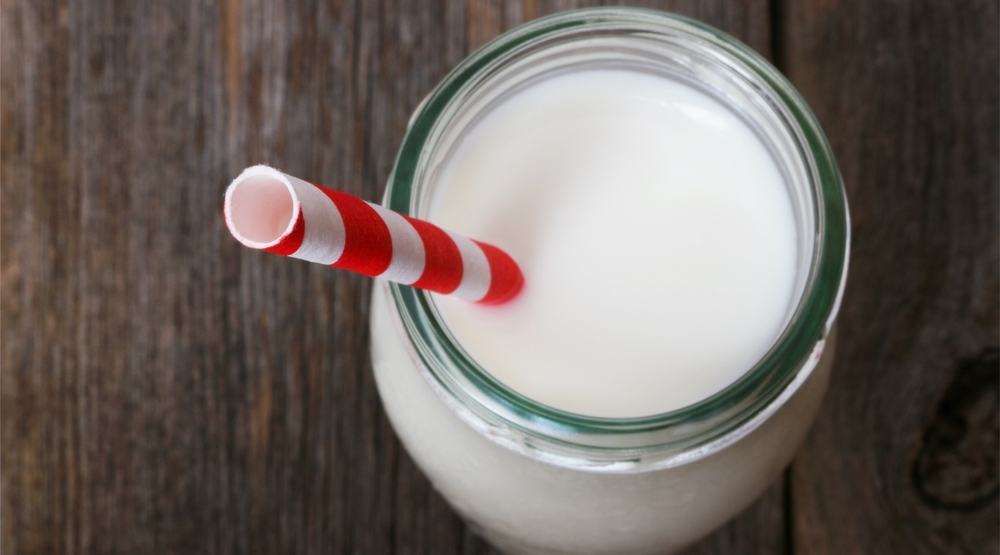
With cold and flu season quickly approaching, you may be wondering how you can stay healthy. The easiest way to beat a cold or flu is prevention. Optimizing your health and immune system will help minimize your risk of becoming sick in the first place, and here are the best ways to protect yourself from the cold and flu:
- Wash your hands frequently and avoid touching your face with your hands
- Sneeze or cough into facial tissue or your elbow
- Get adequate rest
- Manage your stress
- Eat a healthy, balanced diet
- Keep physically active
- Avoid cigarettes and limit alcohol
- Get the flu vaccination annually
- Avoid contact with infected people (when able)
Even if you follow the above recommendations, there is still a chance that you may contract a cold or flu. If you do, here are tips to reduce the duration and severity of the illness:
1. Get some rest

Sleep/Shutterstock
Anyone with children knows that when a child is sick, all they want to do is sleep it off. As adults, we try our best to continue on with our busy lives (including going to work), forgetting that the first thing a sick body needs is rest! If you cannot incorporate a nap into your day, try going to bed earlier in the evening. If you can, take one or two sick days to prevent the illness from getting worse, indirectly preventing the spread of the illness to others.
2. Drink extra fluids

Take a moment/Shutterstock
It can be easy to become dehydrated when ill, especially if you have a fever. Not only that, but adequate fluid intake can help with thinning out/loosening mucus and make it easier to get rid of. Water, tea, coffee, milk or alternatives, soups, and smoothies are all healthy fluid choices that count towards your daily fluid intake!
3. Try hot fluids with honey

Adam Otvos/Shutterstock
Hot fluids, such as tea or coffee, can help relieve a sore or itchy throat and the steam from the mug can help clear nasal congestion. Hot fluids also count towards your overall fluid intake for the day. Honey has both antioxidant and antimicrobial properties which can help your immune system fight off unwanted bacteria and viruses. In one study, reviewed by The World Health Organization, they found that kids (already sick) who were given honey, showed more improvement than kids who were not given honey as a treatment. (It is important to remember that honey should be avoided in children less than one year of age due to risk of botulism) Honey can also act as a great cough suppressant and can help soothe sore throats. Feeling nauseous? Try adding fresh ginger to your hot tea, as ginger is a natural anti-emetic!
4. Vitamin D

Farm fresh anyone? (Lukasz Siekierski/Shutterstock)
Isn’t it interesting that most people get colds and flu during the fall and winter seasons when there is less sunlight? Vitamin D, also known as the sunshine vitamin, plays a key role in many body functions, including the immune system. Researchers found that people with low levels of vitamin D in their blood were significantly more likely to develop a respiratory illness. Dairy products, fortified milk alternatives, fatty fish, and egg yolks are the best food sources of vitamin D, but make sure to ask your healthcare practitioner if a vitamin D supplement is right for you.
5. Vitamin C

Shutterstock
It’s been a long-standing piece of advice that if you’re sick, reach for some vitamin C! Finally, there is emerging research to back this claim up. Vitamin C is a powerful antioxidant and plays a vital role in immune defence mechanisms to help your body fight off infection. While reaching for more vegetables and fruit (often the best sources of vitamin C) is always a good idea, there is new evidence that high doses of vitamin C (1-2 grams per day* for adults) can help reduce the duration and severity of your cold symptoms.
*It is important to discuss with your healthcare practitioner prior to starting or changing any supplements to ensure that they are safe and effective for you.
See also
- Aw, gee: Beats celebrating Mickey Mouse's birthday with new headphones
- Donations pour in for emaciated golden retriever found tied up in BC
- We asked a lawyer about starting a business (so you don't have to)
6. Zinc

Shutterstock
Zinc has been shown to help decrease the length of your cold by up to 33%. High food sources of zinc include meat, seafood, nuts/seeds, whole grains, and legumes. Research suggests that taking a high dose of zinc within 24 hours of the onset of your cold symptoms will help reduce the duration of your cold. Discuss with your healthcare practitioner if a zinc supplement is right for you.
7. Flavonoids

@andrewwelch/Unsplash
Flavonoids, which give vegetables and fruit their colour, have been found to reduce your chance of getting infections, especially infections of the upper respiratory tract. A review found flavonoids are effective in boosting immune system function due to their anti-inflammatory, antiviral, antimicrobial, and antioxidant properties. Flavonoids are found in vegetables and fruit, but particularly rich sources include blueberries, dark chocolate, and green tea.
8. Echinacea

Woman taking pill (fizkes/Shutterstock)
Echinacea extract has been shown to help with recovery from illness as well as preventing the common cold. A study found that, over a period of four months, supplementation with echinacea did help with treatment and prevention. Recommended adult dosage for echinacea is 2400 milligrams per day* for prevention and 4000 milligrams per day* for treatment. You can purchase echinacea as a tablet, liquid, cough drop, and even as a tea!
*It is important to discuss with your healthcare practitioner prior to starting or changing any supplements to ensure that they are safe and effective for you.

Calling in Sick/Shutterstock

